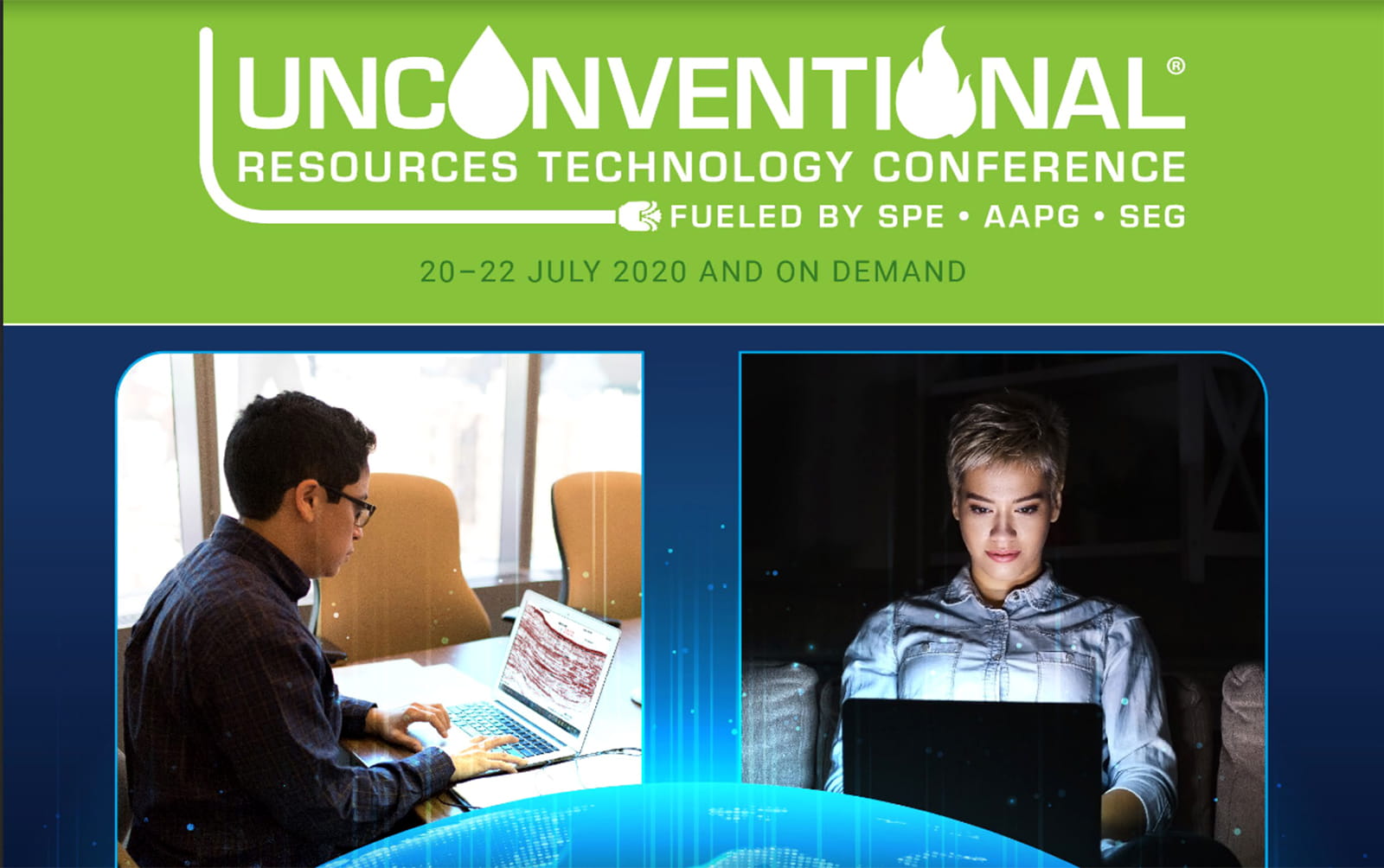URTeC Pivots To Online Conference, Illustrates Adaptability

The Unconventional Resources Technology Conference (URTeC) response to the COVID-19 pandemic this year was to pivot to a virtual format illustrating the flexibility and resilience of its operators.
The Unconventional Resources Technology Conference (URTeC) response to the COVID-19 pandemic this year was to pivot to a virtual format illustrating the flexibility and resilience of its operators. Aramco's sponsorship and participation in the technical program showed its commitment to URTeC's three founding professional societies—the Society of Petroleum Engineers (SPE), American Association of Petroleum Geologists (AAPG) and the Society of Exploration Geophysicists.
During the opening plenary session, panelists from the public and private sector offered business insights, stressing the need to drive down costs while producing in an environmentally sustainable way.
Technology a key in reducing costs
While horizontal drilling and hydraulic fracturing are the two primary technologies employed by unconventional operators, this year's participants shared further advances in multi-well pad drilling, proppants, multi-stage fracturing, and new fluids and stimulation techniques contributing to optimizing production, maximizing estimated ultimate recovery (EUR) and reducing costs.
The strength of URTeC's technical program underscores the importance of technology, featuring more than 250 talks, panels and presentations live streamed or recorded and an Operator Forum sharing best practices.
Aramco has been a diamond sponsor since the inaugural conference in 2013, reinforcing the company's interest in the pursuit of unconventional—namely shale and tight gas—as part of its Unconventional Gas Initiative. For the past seven years, contributions to the technical program have created new sessions, leading to the integration of other geoscience and engineering disciplines into the program.
Since 2018, each URTeC has featured ten geomechanics sessions with more than 45 technical presentations each year, many chaired by Aramco professionals.
As the geomechanics chair at URTeC since 2013, Gang Han, Petroleum Engineer, Aramco Americas Upstream is pleased to see the integration of geomechanics, geology, geophysics, and engineering into the program. Han developed ten sessions and chaired a session this year in “Fracture Modeling and Stimulation Optimization.”
“Unconventional industries have entered a rational stage of maximizing production and EUR with minimal investments. Hydraulic fracturing coupled with geomechanics-reservoir simulations is key to optimizing stages, wells, and pad developments” he said.
Also continuing several years of involvement with the conference, Theo Mallinson, Petroleum Engineer, Aramco Americas Upstream, reviewed over 80 abstracts for three technical sessions on behalf of the Program Committee.
Ali Momin, General Supervisor, Saudi Aramco's Exploration and Petroleum Engineering Center - Advanced Research Center (EXPEC ARC), chaired a session on “Impacts on Well Construction, Design and Drilling.”
Technical papers illustrate advancements
Aramco's continued technical advancements could be seen in the paper “A State-of-the-Art Technology to Reduce Fracturing Pressure in Tight Gas Formations Using Thermochemical Pulse” presented by Ayman R. Al-Nakhli, Science Specialist, EXPEC ARC. Formation breakdown failures in tight-gas, high stress reservoirs are challenging. The paper described a novel technique involving pressure pulses created in milliseconds combined with hydraulic fracturing to help reduce breakdown pressure to propagate fractures. The thermochemical fracturing pulse technique weakens the rock and reduces breakdown pressure while contributing to further micro fracturing.
In another paper “Adsorption Potential Analysis for Shale and Pure Clay Samples: An Experimental Study,” Mohammed K. Al-Arfaj, Petroleum Engineer, EXPEC ARC, examined the chemical interactions between water and shale rocks with high clay content. The presence of clays in contact with water-based drilling fluids can lead to swelling, disintegration and sloughing. The work analyzes adsorption isotherms and contributes to understanding wellbore instability with shale drilling, which is a major source of non-productive time for drilling operations.
Dedicated labs and research and development from Aramco's global R&D network support these rapid advancements moving from the lab to the field.
Teams from Aramco Americas Upstream, Public Affairs and Staffing supported the event. More than 2,000 professionals worldwide registered for the virtual event held July 20-22.



